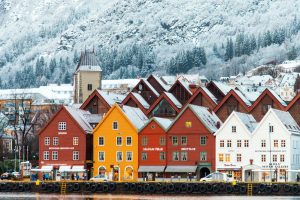Eco-friendly holidays are a good way to reduce your carbon footprint while supporting local economies. Try homestays, eco-friendly AirBnB listings or hostels that do less harm, if any.
If you’re flying, consider airlines with carbon offset programs to minimize environmental impact.
Go for Local Accommodations
Staying nearby supports community development and reduces pollution associated with long commutes. You also get a more authentic experience tailored to suit your interests.
The best sustainable accommodations follow green practices such as energy efficiency and water conservation. They should also recycle materials and fight waste.
Book with local guides who know the area well instead of large international tour companies that may not have deep connections or good working relationships with smaller suppliers.
Avoid Overcrowded Destinations
Overtourism leads to congestion, pollution, higher prices and degradation of natural systems like wildlife habitats or marine areas. Plan your trip during off-peak season for popular attractions — you’ll enjoy more space and less stress too!
As part of your overall strategy for reducing travel emissions, support projects that help remove or prevent CO2 from entering the atmosphere in the first place through reforestation or clean energy.
Reduce Resource Use
Carry reusable water bottles and containers for takeout food; refuse disposable items like straws when eating out at restaurants; bring your own cutlery set if possible; use hotel towels sparingly etcetera…
If you must offset carbon emissions caused by air travel consider only those offsets which facilitate certified underground carbon sequestration but always prioritize direct emission reductions over purchasing credits!
Don’t Pollute
Sustainable travel means leaving places cleaner than we found them! Don’t ride animals unless they’re treated well; never buy products made from endangered species either alive or dead (this includes ivory); say NO THANKS to plastic bags;
Straws along with other single-use plastics like water bottles pose a serious threat to marine ecosystems worldwide because they take ages to decompose if ever. Choose trains over planes whenever possible — otherwise buy forest credits!
Eat Local Food
Support the local farmers by eating food produced near your destination as this will help them stay in business and create jobs at food processing Plants within towns where people live.
Food transportation accounts for about 11% of global GHG emissions associated mainly with climate change effects. Locally grown foods are also tastier and cheaper too!
Use Public Transport
Sustainable travel is about taking small steps that add up such as using buses instead of taxis, shopping ethically even when abroad or going back home early from parties so you don’t waste water etcetera…
Flying remains one of the dirtiest modes of transport – opt for trains which have much lower carbon footprints unless it absolutely necessary; reforestation can help offset some emissions since trees absorb CO2.
Avoid Junk Food
Other sustainable travel tips include choosing accommodations and eating joints that support recycling practices or zero waste initiatives.
For those who absolutely must fly, consider buying carbon offsets – these are schemes which finance projects aimed at absorbing atmospheric CO2 through afforestation especially in developing countries
When in a new place, one should eat like the locals do: slurp down oysters and nibble on yiaprakia in France or have stuffed cabbage in Greece — not only does this support the economy, but it keeps cultural traditions alive. This is how you can truly immerse yourself into another culture.
Reduce, Reuse, Recycle
Instead of using plastic ornaments that consume excessive amounts of energy when being manufactured, opt for natural ones such as twigs, flowers, or branches found around your neighborhood while decorating for the holiday season. LED light bulbs are great for creating an eye-catching light display because they use less power than traditional lights.
Purchase greeting cards printed with nontoxic ink and no metallic or plastic coatings. Better yet send your loved ones postcards instead of cards as gifts.
Sustainable Presents
Give eco-friendly gifts to any environmentally conscious travelers on your list this year — reusable shopping bags, stainless steel straws and an eco-friendly habits tracker are all great options. They’ll appreciate these useful presents that won’t just collect dust on their shelves!
Carbon offsets make a fantastic gift by supporting reforestation efforts — be sure to choose a provider who has verified credentials from reputable organizations.
Plant-Based Diet
Staying fit while traveling is easy with plant-rich diets which also help reduce plastic usage and waste; additionally they will ensure you don’t accidentally consume any animal products during your trip!





